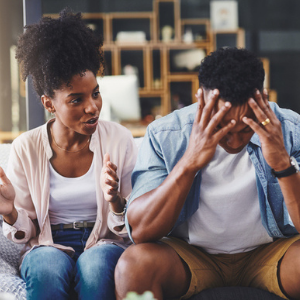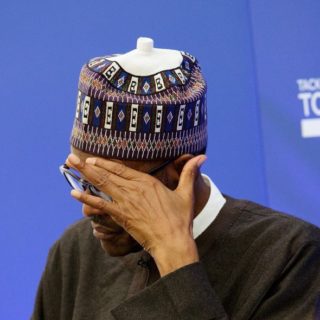For some reason, Nigerians seem to have a huge problem with feminism as a concept. If you throw a stone into a crowd of people odds are it’s going to land on a Nigerian who thinks feminism means ‘hate men’.
So I asked a bunch of people to tell me what questions they had about feminism and tried to give them some answers.
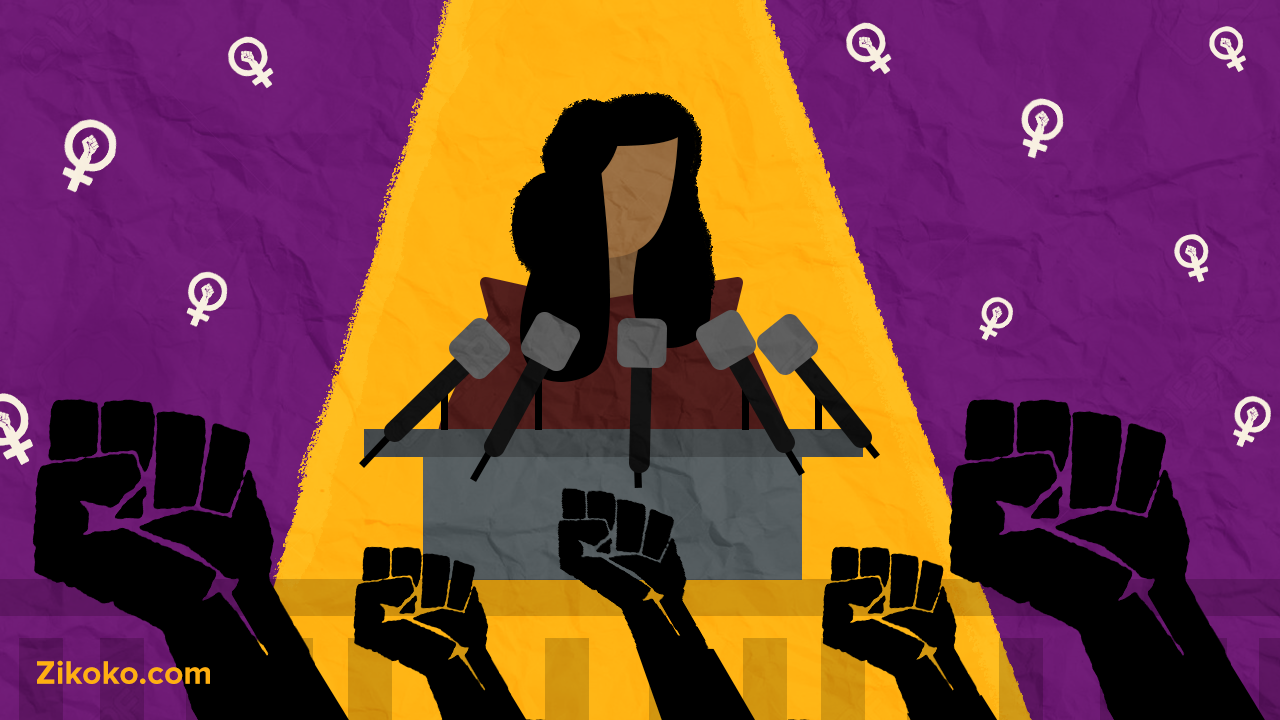
“What’s this feminism thing you people are always talking about sef?”

Look at this, a boy gets an apple, a girl gets an apple. Then the boy gets an orange. And when the girl asks for her own orange, they tell her she only gets an apple, because oranges belong to boys. Feminism is saying that everyone has a right to apples or oranges, male or female. Equal opportunities.
“Why are women trying to equate themselves with men?”
Women hate having to deal with cramps and periods every month, but we aren’t out here trying to become men. All we’re saying is, we want access to the same opportunities as men. So if a man wants to be a Doctor, a woman can also want to be a Doctor. If a man wants to be an Engineer, a woman can also want to be an Engineer.
“Feminists just want women to be superior to men.”
Okay, back to the apples and oranges. Feminists believe women should have access to oranges like men. Not “only women get the oranges.” Feminists are saying, “everyone has a right to oranges, male or female.”
“But it’s not all men who are trying to keep women down.”
We know it’s not all men. What we also know is that it’s enough men for it to be a problem. When you say #NotAllMen, you shift attention from the fact that women are being oppressed. For you, it becomes about just the protection of men, and not the inclusion of women.
“Where’s the proof that women are being marginalized?”
Where do I even start? Is it child marriage that’s prevalent in the North and other regions in Nigeria? Or genital mutilation in the south? Or to the part where women must choose between family roles or gender roles, a burden that’s hardly placed on men? Or is it how Nigeria is ranked the 9th most dangerous place for women in the world? Look around you, who’s most likely to get pressured into a marriage? Or most likely will not be inheriting property because of gender?
“So you mean you won’t cook for your husband?”
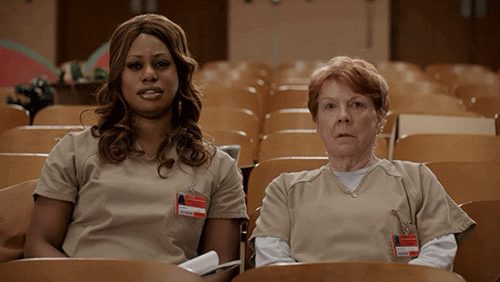
Centuries ago–maybe millennia–men tended to play a role of provider and protector. The women naturally took on the role of nurturer and caretaker.
But look around you today, man goes to work, to be able to provide and protect the future of the family. Woman goes to work, to be able to provide and protect the future of the family. Why is still that a survival skill–as basic as cooking–still remains the responsibility of the woman? Why then aren’t women allowed to choose whether they want the role of cook and caretaker? If women want to cook, okay. If they decide they don’t want to, should they be forced to? No. Cooking for oneself, and for others, can be an enjoyable experience but only when it’s done out of one’s own volition.
“Why don’t feminists ever discuss real problems?”
The question is, are you paying attention? If you are, and still don’t see the point, it’s probably because you’re trivializing women’s problems. An example, men don’t have to worry about what to wear, because no one will call them names. They don’t get turned out of places because their sense of style seems to affront the doorman. They don’t get blamed for sexual assault because “your skirt was too short”. So the question is, are you listening, or do you consider problems women have as trivial?
“Why are feminists only fighting for women’s rights, they should also fight for men’s rights.”
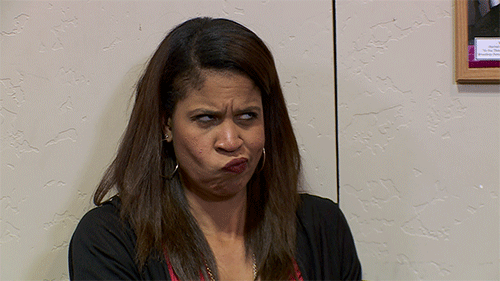
Imagine a C.E.O asking his employees to protest that he’s not getting his bonuses. His employees? They’re overworked, underpaid and have no health insurance. That’s exactly how it feels when men ask women to fight for men’s rights. Even so, feminism doesn’t only speak about women’s struggles. It speaks about the tough standards society has set for men, and how they affect women.
“Shebi women want to be equal to men, why aren’t they doing bricklayer work?”
Choice. If a woman decides she wants to be a bricklayer, let her. Besides, if you haven’t seen women do physically demanding jobs, are you paying attention?
“But men are stronger than women.”

Let’s ignore all the other factors and focus on physical strength. Yes, the average man might be physically stronger than the average woman. So, the man can do heavy-lifting. But if the woman chooses to do the same, even if she’s not as strong as the man? Let her make her own choice.
“Nigerian feminists are hypocrites. They want chores to be shared equally but don’t want bills to be shared equally.”
Bills should be shared according to a person’s earning power. Sometimes that means that bills are shared equally. It might even mean that the woman ends up picking up a larger tab. Very often it means that the man picks up the larger tab. The fact is, women tend to earn less than men. It’s also interesting to note that African women have, for the longest time played a silent but significant role in the family unit as breadwinners.
“What about the women against feminism?”

There are a few reasons why. Many women say they want equal opportunities, but don’t like labels. We get that. There are others who don’t understand it. Take FGM, there are women who still insist it’s right. But it’s because they are ignorant of all the dangers that exist in it for women.
Every woman who reads this and doesn’t believe in feminism, think about this. At some point in history, people wanted to stop women from getting education. Some resisted this and thought “everyone, male or female, deserves an education.” The people who resisted it, those are feminists.
“You know what? Feminists just hate men.”

The word you are looking for is misandrists. Although the two terms are often confused, they are completely different. When you hear “all feminists are men-haters”, it’s no different from where false stereotypes. Like “all Calabar people eat dog meat” or “all Warri men are fraudsters”. Or every Nigerian man is a Nigerian Prince.
“Why do feminists hate marriage?”
Marriage is a beautiful thing. What isn’t beautiful is a tradition that considers a woman to be her father’s property. One to handed over to her husband by her father, after a ‘payment’. The significance of this, is that she becomes her husband’s ‘property’ and he wields power over her. Some feminists want to marry, as long as they’re not made to feel like property, because they’re not. Some feminists don’t want to marry, and that should be okay too.
“Feminism is against our culture.”
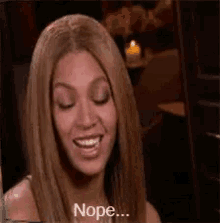
A couple of decades ago part of our culture in parts of Nigeria was killing twins now it’s not. Mary Slessor tried to stop the killing of twins, But there were people who thought it wasn’t ‘part of their culture’. Culture evolves. We evolve and settle for what’s better. So what’s better, a culture of equal opportunities for everyone, or for one gender?
“God created women to assist and be a companion for men. God said Adam should have dominion over Eve.”

This idea stems from a bible verse that remains misconstrued till this day. The belief is that Adam was given authority to name and dominion over all the animals in Eden. Adam also happened to name Eve which means that he must have had authority over her also. But the Bible goes on to say that both Adam and Eve were given dominion over the animals. Not that Adam was given dominion over both the animals and Eve.
“Women need to be careful not to create an imbalance in the society because it would be at the detriment of their children.”
The irony is that this imbalance already exists. The ‘balance’ you are talking about is exactly what feminists are fighting for. It’s easy to think this balance already exists when you view society from a point of privilege.
“Nigerian ladies only turn to feminism when they fail to find a male partner to love”

LOL.
“Nigeria is not ready for feminism.”
Nigeria might not be ready for feminism, but it needs feminism. It’s the same way people say we’re not ready for proper leadership, even though there’s a dire need for it. “Nigeria isn’t ready for feminism” is synonymous with “Nigeria isn’t ready for progress”. The average person feels about Nigeria’s state what the average woman feels about women. Systemic oppression, regardless of age or social status.
In the end, feminism is not about division. It’s about creating a better future, where everyone–male or female–has a seat at the table.
Thank you for coming to my Ted Talk.
Here’s another Ted talk you should pay attention to;

